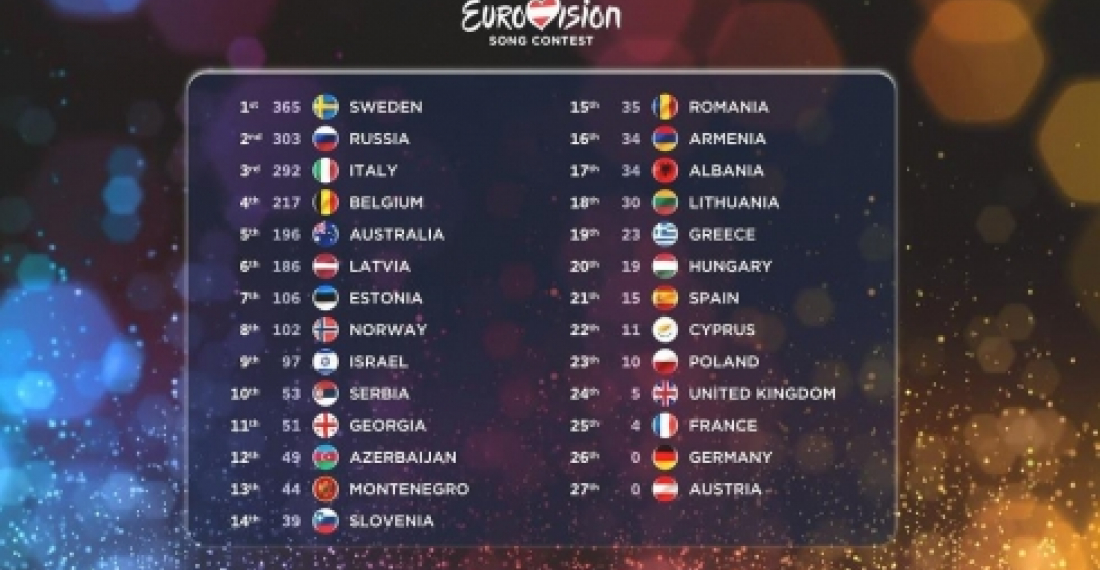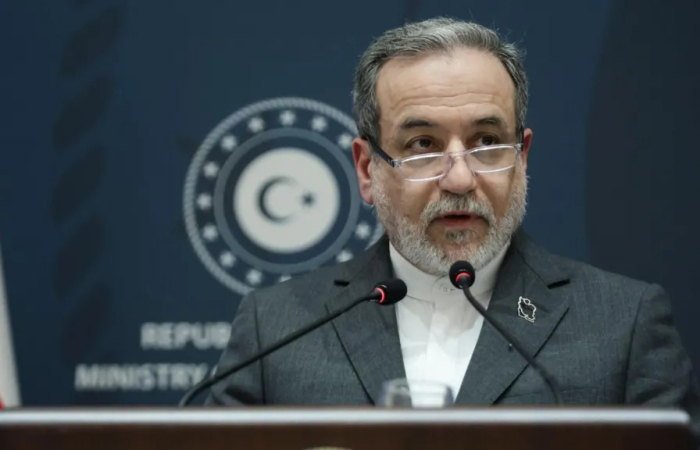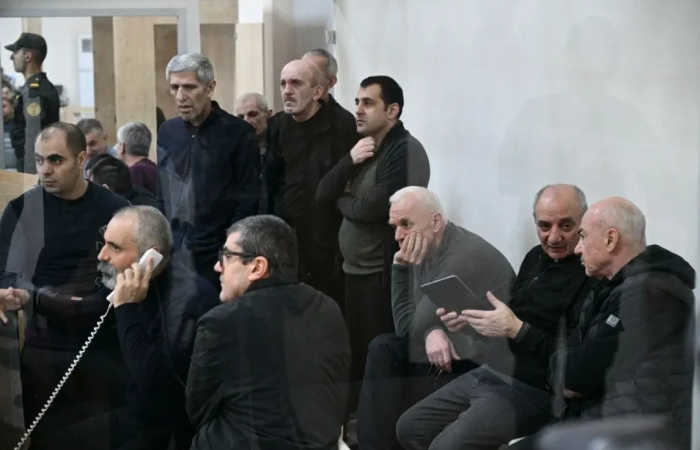The annual European song extravaganza came to a climax in Vienna on Saturday night (23 May) with Sweden emerging as the winner. The Eurovision Song Festival attracts an annual televsion audience of hundreds of millions, and this year was also shown for the first time in China. The festival is aimed to celebrate harmony and good relations between European nations. The festival is taken seriously in the South aucasus. Armenia, Azerbaijan and Georgia have only joined the festival in recent years, and they put a lot of effort in preparing their entry, as wll as in trying to secure victory.
Of the three only Azerbaijan has ever won a contest, having been victorious in 2011.
This year none of the three countries came close to winning, but all three managed to qualify to the final and to place in respectable positions in the final score list, with Georgia emerging in the 11th place, Azerbaijan in the 12th and Armenia in 16th of the 27 countries competing on the final night.
source: commonspace.eu







